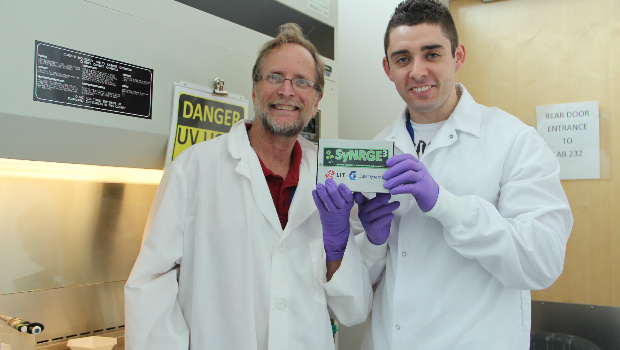Limerick Institute of Technology (LIT) has gone where no other Irish institution has gone before by landing an experiment on the International Space Station (ISS) that could deliver a breakthrough to successfully growing crops in extreme conditions on earth.
The project, which was one of eight chosen after a worldwide competition, will explore over the next 28 days how the clover-like payload reacts in space and whether or not it can be used as a natural fertiliser for crops there.
If proven in space, the application may also be replicated on earth, potentially leading to a major breakthrough for sustainable farming of crops in harsh environments, including in existing barren lands in the developing world and reduce the use of synthetic fertilisers on earth.
Additionally, the research could lead to crops such as peas, radishes and lettuces, being grown in space. This could assist dietary requirements for astronauts in long-duration missions, delivering a more balanced menu than the current freeze-dried foods option.
This is the first time an Irish institution has been a leader and principal investigator in an experiment to the International Space Station. The LIT research is led by Prof Gary Stutte, who for the past three years has been on secondment as a Marie Curie Research Fellow to the Controlled Environment Laboratory for Life Science (CELLS) at the Institute.
A panel of independent and scientifically qualified judges based at Space Florida – the State’s spaceport authority and aerospace economic development organization – chose the LIT project among only a handful of other shortlisted universities such as Stanford and Florida IT.
“We are very optimistic about this experiment as it will tell us much about the operating limits of the biological process, which could lead to extremely valuable applications both in space and back here on earth,” said Prof Stutte.
“This is new frontier research at its best as it is essentially trying to explore ways of assisting humankind. We could be advancing the building of space farms of the future arising from this research. There is already red lettuce up there growing and my thumb print is on that so this is looking at the value of a naturally occurring fertilizer for crops. It may well also arrive at some extremely positive findings with regard to advancing farming in extreme conditions on earth.”
After its 28 days on board the ISS, the payload will be returned to the capsule, which will un-berth and make its way back to earth, landing in the Pacific Ocean before being brought back to NASA and then returned to LIT for analysis.
The rocket took 36 hours to reach the ISS, which is located 216 miles above the earth, and was travelling at 42,000mph.
The success follows the historic achievement by LIT in 2011 when one of its post-graduates, Gerard Newsham, had his research programme carried on board the last ever NASA space shuttle mission.
TechCentral Reporters








Subscribers 0
Fans 0
Followers 0
Followers